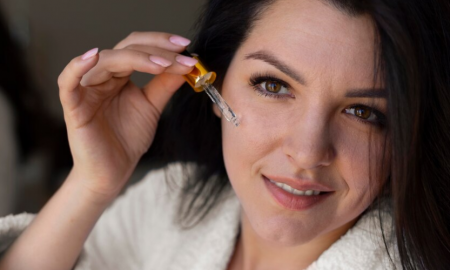
Why Do We All Age Differently?

Ever wondered why we age differently? Few researchers have highlighted four ‘ageotypes‘ or biological pathways responsible for the aging process. What made them largely curious was how getting older implied coping with multiple health issues. And if that’s the case, why would people at all face different problems. Here’s what proceeded.
All About The Findings
 A team of researchers from Stanford University School of Medicine, California, had begun with this new study. They chose a group of 43 healthy participants. All of them were around 34 and 68 years who underwent assessment for molecular biology markers. And this was for no less than five times and two years. This longitudinal approach was a path-breaking method for they found detailed aging profiles assisting them in ‘mapping’ individuals’ varied aging parameters.
A team of researchers from Stanford University School of Medicine, California, had begun with this new study. They chose a group of 43 healthy participants. All of them were around 34 and 68 years who underwent assessment for molecular biology markers. And this was for no less than five times and two years. This longitudinal approach was a path-breaking method for they found detailed aging profiles assisting them in ‘mapping’ individuals’ varied aging parameters.
For example, high cholesterol is a common aspect found in older people. However, it was possible to gain more than mere ailments from population averages. After all, looks don’t stay the same for even two people in a similar age category. The four different biological pathways came, which proved essential in characterizing aging and its types.
The Four Ageotypes

One good thing about the study was the comprehensive view about aging after delving into broad-ranging molecules and even gathering multiple samples across the years from almost every participant. Aging at the molecular level is quite complex and varies from man to man. Researchers even checked a few biological samples, like the blood and stool of participants.
Microbes’ presence and even activities would change as much as the molecules, including proteins, fats (lipids), and metabolites. After careful analysis, researchers found the four different ‘ageotypes’ or aging pathways- metabolite (meaning build-up and breakdown of bodily substances), immune (connected to immune responses), hepatic (all about liver functions), and nephritic (about kidney functions).
Now the question arises why these?
Researchers explained that people having a strong predisposition to metabolite aging ran high risks of diabetic conditions, for example. Also, we can’t rule out that an individual predisposed to one condition doesn’t develop a couple or more types of aging since combinations often result in multiple health issues.
Besides the aging types, there were obvious differences in aging rates present in individuals. These findings proved amazing when alerting people about how and when they should exert more control on their lives. Truly, the sooner we get to know what types of aging we’re predisposed to, the better and more empowering it will be to chalk out a strategy to minimize the health problems that we are likely to face. Thereby, we can also slow down the aging process.
Slowing Down Ageing? That’s Possible!
 Not that research has unveiled the miracle totally, but there are possibilities that you can slow down aging. The team of researchers looked for underlying factors that propelled aging. Specifically, they compared aging profiles of people who were otherwise healthy but insulin sensitive and those who were insulin resistant.
Not that research has unveiled the miracle totally, but there are possibilities that you can slow down aging. The team of researchers looked for underlying factors that propelled aging. Specifically, they compared aging profiles of people who were otherwise healthy but insulin sensitive and those who were insulin resistant.
But the bodies have lost their usual effective capacities of processing blood sugar. No less than ten molecules were significantly different between the younger and older participants. But amazingly, the study continued for a couple of years, and data collection results revealed that not everyone reflected similar changes in ageotype markers.
What is even more interesting is that individuals who made noticeable changes in their lifestyles (especially diet) decreased ageotype markers for a certain period. Certainly, that indicates these individuals were aging slowly. Few participants also showed age-related transformation in hemoglobin A1c and creatinine connected to the kidneys’ functioning. That occurred at lower rates too. Though people who made immediate lifestyle changes did not show improvements when the study was in progress, it all happened gradually.
The team of researchers hoped to find some more amazing results in due course of time. Since the findings are recent and mark the beginning of quite a complex journey towards deciphering how aging works, it will reflect solid results with time. Mysteries abound everywhere, and perhaps research will unmask several such interesting details. We can find that fabled Fountain of Youth if that happens too! And soon enough, the worries about wrinkles and freckles would be a thing of the past. Are you excited? Do let us know in the comments section!
More in Anti-Aging
-
`
Should I Visit a Chiropractor? The Tell-Tale Signs
If you’re wrestling with persistent discomfort in areas like your neck, back, or shoulders, you’re not alone. Many Americans are intimately...
July 19, 2024 -
`
Chad Smith and Will Ferrell Drum-Off – A Night of Comedy and Music
The year was 2014. The late-night talk show landscape was abuzz with a brewing battle unlike any other. It wasn’t a...
July 8, 2024 -
`
Can Coughing Cause Back Pain?
Back pain is a common complaint among many individuals, but did you know that a simple action like coughing can exacerbate...
July 5, 2024 -
`
How to Overcome Imposter Syndrome?
Imposter Syndrome is a familiar term many recognize as a psychological state where individuals doubt their accomplishments, fearing that others will...
June 27, 2024 -
`
Which Peptides Are Best for Anti-Aging?
For those seeking to combat the signs of aging and maintain a youthful appearance, the world of skincare can feel overwhelming....
June 18, 2024 -
`
Celebrities with Celiac Disease – Inspirational Stories and Struggles
Celiac disease is a serious condition, and even the rich and famous aren’t immune. Many celebrities have been open about their...
June 10, 2024 -
`
How to Fix Poor Sleep Hygiene for Better Rest
Sleep is a fundamental human need, as crucial for our well-being as a healthy diet and regular exercise. Yet, many people...
June 6, 2024 -
`
5 Easy & Effective Ways of Coping With Depression
Depression is more than just feeling sad or having a bad day. It is a pervasive mental health condition that affects...
May 30, 2024 -
`
Top 10 Practical 60th Birthday Ideas For Everyone
Turning 60 is a milestone worth celebrating! Whether you are planning your own bash or organizing a celebration for a loved...
May 24, 2024















You must be logged in to post a comment Login